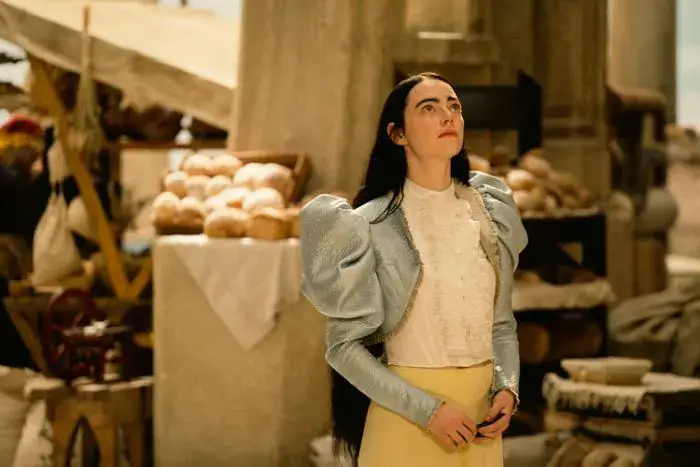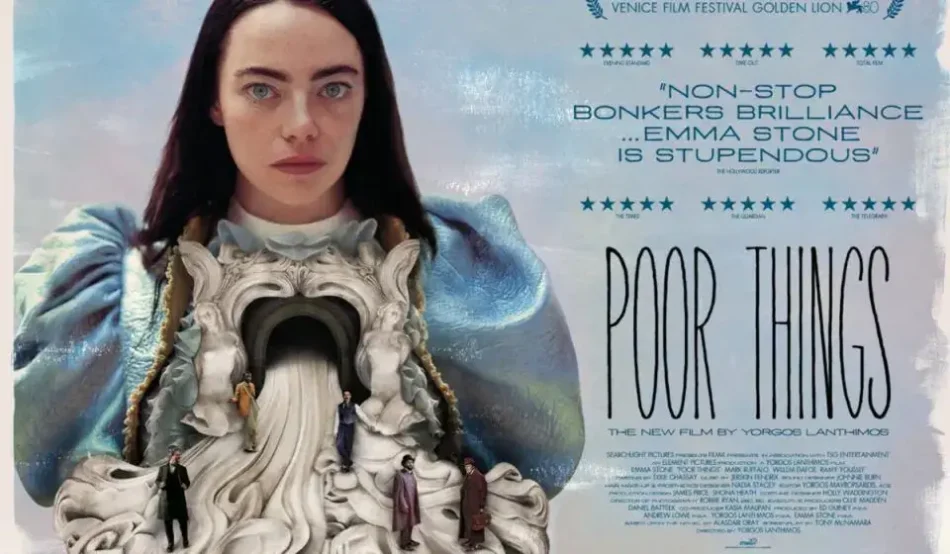(may contain spoilers)
Douban rating: 6.9
Director: Yorgos Lanthimos
Starring: Emma Stone, Mark Ruffalo, Willem Dafoe
Douban Comments: “At the 80th Venice Film Festival, the audience erupted into applause and were reluctant to leave for a long time. The actors’ exuberant performances merged seamlessly with the fantastical yet realistic sets, creating a dreamlike world of Lisbon, sailing ships, and snow-covered Paris. It depicted a beautiful world as if in a dream, where humans are portrayed as the most hideous, fragile, and lonely creatures. Yet, living is an incredibly magnificent and wonderful experience. The film offers a satirical discussion on religion and philosophy, and explores the complex and subtle power dynamics of a patriarchal society. In the end, Bella forgives God and becomes the new God. With a dark version of Barbie and a hedonistic Ken played by Mark Ruffalo, it is a work of absolute freedom, boldness, and impact. I absolutely adore the director’s vibrant talent.”
“This year’s cult female film. ‘Barbie’ is a fairy tale, while ‘Poor Things’ is a dark fairy tale. The original work, combined with Yorgos Lanthimos’s eerie design and Emma Stone’s explosive performance, creates a female Frankenstein who swims in a sea of sexual addiction. The film traces her journey from being modified by men to modifying men herself, transforming from a pitiable creature into an enlightened woman. Through a child’s perspective and fisheye lens, the film explores the good and evil of humanity, with various surreal settings that are breathtakingly beautiful. The smiling God at the end is likely Lanthimos himself… (It’s impressive how the Golden Lion Award can still be so edgy at 80 years old).”

“The first thirty minutes are not bad; the birth and confusion of the female Frankenstein, along with the steampunk world, are eerie yet captivating. However, once Mark Ruffalo appears, everything falls apart. The film’s excessive focus on female sexuality is filled with the male director’s misunderstanding of the second and third waves of feminism. It also proves that no matter how much a sleazy person tries to appear pure, they can’t hide their sleaziness. This mindset is fully exposed in the unnecessarily elaborate ending: while it seems like Bella is rebelling against something, in reality, nothing has changed – she has merely become a part of the male-dominated society.”
“This film feels even more Barbie than Barbie – if that makes sense. It’s like watching a child who’s never been constrained by society grow up. The theater was full of joy; the loudest laughs came from a few men in the front rows (which I didn’t expect – they didn’t seem offended at all). The ending was met with applause, and quite a few people stayed through the credits.
The story flows well, has meaningful twists, and the dialogue is charming. Her story is almost poetic – she’s both her own mother and her own daughter.
As for the nudity – honestly, it’s not excessive. It all serves the story and never feels gratuitous.
I’m not sure if the film is choosing its audience, or if the audience is choosing the film – but one thing is clear: you only see what you’re ready to see. These films reflect you.”








